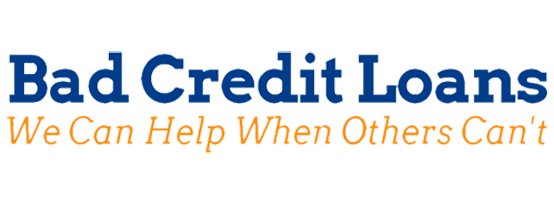- No fixed minimum credit score.
- Works with many different lenders to find the best fit.
- Relatively low minimum borrowing amount.
Best Installment Loans for Bad Credit for December 2024

Our evaluations and opinions are not influenced by our advertising relationships, but we may earn a commission from our partners’ links. This content is created by TIME Stamped, under TIME’s direction and produced in accordance with TIME’s editorial guidelines and overseen by TIME’s editorial staff. Learn more about it.
If you’ve been careless with credit in the past—or if life simply threw you some wild curveballs—you may have bad credit. It can happen to anyone. The important part is that you set your sights on improving your situation.
But while you’re busy giving your all to bolstering your credit, you might have some legitimate reasons for taking out an installment loan. Unfortunately, your options will be limited with a bad credit score.
Whether you’re interested in a debt consolidation loan, a higher education loan, or a small-business loan, you should know that you’ve got choices. Here are our top picks for the best installment loans for bad credit.
PersonalLoans doesn’t actually loan money. It’s a loan aggregator that takes your personal information and searches for the best lender for your situation.
With no mention of a minimum credit score, PersonalLoans plays it close to the vest on its site when it comes to its approval standards. As long as you don’t have recent bankruptcies, a history of late payments (including current accounts over 60 days late), charged-off accounts, or debt that can’t be covered by your income, you may qualify for a loan with one of PersonalLoans’ partners.
If your credit score is too low to achieve an approval, LendingClub could be an option for you. It allows you to add a co-signer, which not all lenders are open to.
By adding a co-signer with good credit, your odds of approval—and a favorable APR—skyrocket. You’ll be approved based on the credit report of your co-signer, who will be responsible for your monthly installments. It’s important to realize that any careless behavior on your part, such as late payments, will reflect on your co-signer’s credit.
LendingClub charges an origination fee between 1% and 8% of your loan amount. It also limits term lengths to 24 to 60 months.
Upgrade has a well-rounded installment loan offering, and it’s generally available to those with fair credit—that is, someone with a credit score in the mid- to low-600s, and even the high 500s.
The company offers discounts for debt consolidation loans—up to 3 percentage points when you have Upgrade transfer 50% or more of your loan to pay off your debts directly.
You won’t deal with prepayment fees when you pay off your loan early. Still, be prepared to pay an origination fee of up to 9.99% of your loan amount and a potentially high APR.
PenFed’s interest rates are noteworthy: Its maximum APR is 17.99%. And it doesn’t charge origination fees, which is one way a bank can get away with advertising low interest.
PenFed doesn’t disclose its minimum credit score, but it does state on its site that “typically, you need a credit score of at least 580 to qualify for a personal loan.” This suggests it’s a good option for someone with bad credit. It also accepts co-signers.
You must be a PenFed Credit Union member to open an installment loan. If you’re not a member, you can easily become one by opening an account and depositing at least $5.
BadCreditLoans doesn’t offer loans. Instead, it works with hundreds of lenders to match you with a suitable option. As its name implies, its specialty is finding loans for those with bad credit.
Not all lenders allow you to use funds for business purposes, but BadCreditLoans does. However, the site caps the borrowing amount at just $10,000. If you’re a small-business owner with bad credit who needs a relatively small loan, this is one of your only options.
Avant gives credit when few lenders are willing to. With a credit score of at least 550, you could be approved for an installment loan. This is the most alluring characteristic of the company. If your credit score is in the mid-500s, this could be your only shot.
Expect to pay an upfront administrative fee of up to 4.75% for the privilege of opening an account.
Credible is another aggregator that helps you to find the best lender for your situation—many of which are on this list. Credible touts the fact that you can prequalify on its website to see rates for installment loans that suit you with a soft credit inquiry so your credit score is not affected. However, this is not an uncommon feature among lenders. You still aren’t guaranteed approval until you formally apply.
One unique feature: Credible works with lenders willing to extend up to $200,000. But if you’ve got bad credit, it’s unlikely you’d qualify for such a high amount.
LendingPoint has a few decent extras that you won’t find with competing loans. For example, you’ll receive free access to your credit score—something handy for those trying to build or improve from “bad” credit.
Also, your account will be automatically reviewed for a reduced APR after just six months. If you’ve been responsible with your payments and your credit profile has improved, this could mean lower interest payments for the remainder of your term.
For what it’s worth, LendingPoint makes a similar claim to Upstart in that it “looks beyond your credit score” when considering you for approval. However, it doesn’t detail what it examines.
If you’ve got bad credit and you apply for a loan from OneMain Financial, you might see the word “secured” next to the offer. This means you can be approved for a loan if you’re willing to provide collateral—such as your car. This opens up offers that you otherwise wouldn’t qualify for because if you default on your loan, OneMain can take your property.
Obviously, secured loans have higher stakes. If you’re not worried about struggling to pay off the loan and you simply need a lender to take a chance on you, which is often the case, this could be a great way to go.
| Lender | APR | Loan amount | Payoff period | Min. credit score |
|---|---|---|---|---|
PersonalLoans | 5.99% to 35.89% | $250 to $35,000 | 3 to 72 months | None |
LendingClub | 8.91% to 35.99% | $1,000 to $40,000 | 24 to 60 months | 600 |
Upgrade | 9.99% to 35.99% | $1,000 to $50,000 | 24 to 84 months | 580 |
PenFed | 8.99% to 17.99% | Up to $50,000 | Up to 60 months | 580 |
BadCreditLoans.com | 5.99% to 35.99% | $500 to $10,000 | 3 to 72 months | Undisclosed |
Avant | 9.95% to 35.99% | $2,000 to $35,000 | 24 to 60 months | 600 |
Upstart | 7.80% to 35.99% | $1,000 to $50,000 | 36 or 60 months | 300 |
Credible | 6.94% APR - 35.99% APR | $1,000 to $200,000 | 12 to 120 months | Undisclosed |
Lending Point Personal Loans | 7.99% to 35.99% | $1,000 to $36,500 | 24 to 72 months | 600 |
OneMain Financial Personal Loan | 18.00% to 35.99% | $1,500 to $20,000 | 34 to 60 months | Undisclosed |
Installment loan interest rates can vary by more than 30%, depending on the lender. This can swing your out-of-pocket cost thousands of dollars in either direction. If you’ve got bad credit, you can bet that the loan you’re offered is at the high end of the APR spectrum. For this reason, it’s wise to choose a lender that offers a comparatively low maximum APR.
Many creditors will charge an origination fee (or similar charge) to open a loan. This can take the form of an upfront fee, often several hundred dollars, or it can be a flat percentage of your loan amount—sometimes 10% or more—which is rolled into your monthly installments.
Some lenders charge no fee. At first glance, a no-fee loan may seem like the obvious way to go, but if your APR is significantly higher, it might be worth paying the arbitrary fee. Be sure to do the math before committing to a loan.
Aside from APR, there are two big factors to consider when comparing installment loans:
Don’t consider applying with a lender if your desired loan exceeds the maximum amount it offers. For example, if you’re trying to complete a $60,000 home remodel, you probably won’t be helped by a lender with a $35,000 loan cap. And if you need 84 months to pay your loan, your finances will be undermined by a lender that only offers terms up to 60 months.
Some lenders will give you discount incentives for how you treat your loan. For example, if you open a debt consolidation loan, you may receive a discount when requesting that the lender use the loan to pay off your debts for you. The lender may be willing to discount your APR, for example, because it knows you’re using the money responsibly to pay off your debts.
You may even get a slight discount simply for enrolling in autopay.
So you’ve got bad credit. How bad is it?
According to Experian, a bad credit score is one below 670. Technically, FICO considers a score between 580 and 669 to be “fair.” But it’ll be tough to get an installment loan with favorable terms if your score is fair or worse.
You don’t want to apply for an unrealistic loan. As an extreme example, some lenders require that you make six figures and have a credit score over 700 to qualify. If you’ve got bad credit, you don’t have a credit score over 700.
You’d be surprised at how many lenders allow you to “prequalify” for a loan before you submit a formal application. By entering a few personal details, such as your Social Security number, address, and annual income, you can know with reasonable certainty if you’ll be approved for a loan.
Prequalification results often include a sample APR that, if you decide to apply, you can expect to pay. You can use the prequalification tool on various lender sites to try to locate the best deal for you. Your credit will sustain a hard credit inquiry only if you take the next step and apply for an offer.
It’s entirely possible that your credit score won’t qualify you for an installment loan. In this case, you may need a cosigner to apply with you. The lender will examine your cosigner’s credit report and approve you based on their reputable profile.
One important note: A cosigner is ultimately the one responsible for paying off your loan. If you default, it will wreak havoc on their credit.
It’s vital to have money in the bank that you can easily deploy in an emergency. You may elect to open an installment loan to keep from touching your precious savings account. But if you’re having a hard time getting approved for a loan, now might be that emergency, depending on the reason you need the money.
You can borrow against the equity you’ve built in your home or automobile by applying for an equity loan. This is considered a secured loan, because it’s backed by your property. If you default, the bank may take your collateral and sell it to recoup its losses.
You still must be approved—the bank will need to make sure you can repay the loan—but it might be an easier route than achieving an approval for an unsecured installment loan.
Cash advances are a last resort. They are extremely expensive in two ways:
Cash advances are tantamount to a predatory payday loan. Unless you absolutely need it, stay away.
If your credit score is in the mid-600s or below, you should look into an installment loan for bad credit. Many lenders prefer to stay away from subprime borrowers, so it will be harder to get approved for a loan from most lenders.
Also ask yourself if this loan will further hurt your ability to improve your credit score. For example, if you’ve got high credit card balances and you’re looking to consolidate debt, an installment loan for bad credit is a great idea—and can potentially boost your credit score. But if you want to renovate your house, putting you deeper into debt, it’s not a good idea.
When you apply for a loan, your credit score will take a temporary hit. That’s because the lender will run a hard credit inquiry on your account to approve you for the loan—and your credit report doesn’t like that.
Your credit score will fall a few points, but it should rebound in a month or two as long as you use your credit responsibly.
The size of your monthly payments are determined largely by the amount you borrow and the number of installments you’ve got to pay it back. Just because a lender is willing to approve you for your desired dollar amount doesn’t mean it’s an affordable loan.
In other words, don’t be enticed by a generous loan if its term length doesn’t suit your budget.
Yes, it’s possible to receive an installment loan, even with bad credit. But before you submit an application, ask yourself why you’ve got bad credit in the first place. Is it from overspending? Is it from late payments? Is your credit utilization through the roof?
If you’ve got bad credit, you could be in a precarious financial situation. Don’t let an additional loan be the death knell for your credit profile.
The minimum credit score for installment loans varies by lender. That said, most lenders won’t approve someone with a sub-600 credit score.
Technically, the easiest type of installment loan to get approved for is one that doesn’t require a credit check, such as a payday loan. Keep in mind that these come with extremely high interest rates and steep penalties, which make them, with little exception, a bad deal. Payday loans are not available in all states.
You can have as many installment loans as you are approved for. Just note that when you apply for a loan, the bank will consider other monthly payments you’re obligated to pay, and they may not approve you if your debt-to-income ratio is too high.
The information presented here is created by TIME Stamped and overseen by TIME editorial staff. To learn more, see our About Us page.













